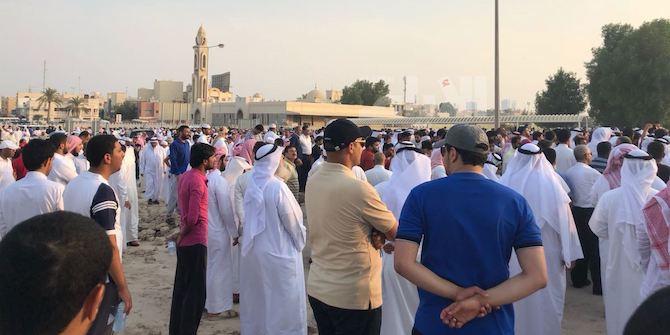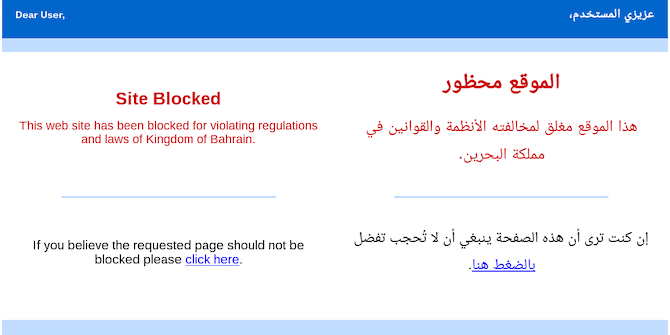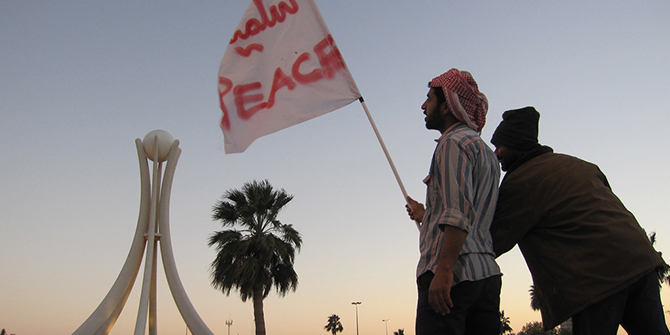by Mohamed Aldaaysi

In mid-June 2018, the murder of a local imam in one of Bahrain’s mosques re-ignited calls by various sub-sections of local society to institute a ban on Bangladeshi migrants. Back in 2008, similar attempts to stop businesses from hiring Bangladeshis were made after another murder case which saw a mechanic from the country assaulting and killing a local client after a pay dispute. The recruitment ban was, however, short-lived, owing primarily to the heavy reliance on Bangladeshi labour and resistance from local capitalists; especially in the construction sector.
The grotesque nature of the imam’s murder – he was tortured, cut into pieces and had his body dumped in a garbage disposal by a Bangladeshi muezzin and a few of his accomplices – was enough to steer public opinion away from discussing the nuances that underlined the inherently conflictual power relations between the imam and his area’s Bangladeshi community. The imam was reportedly trading in work permits, a common practice in Gulf countries that often leads to a rather precarious form of employment for migrant workers.
Through visa trading, citizens sponsor migrants’ work permits – in exchange for either a monthly fee or an upfront payment – granting them quasi-legal residency status while restricting their labour to a single employer. This type of rent-seeking activity that the imam was involved in, and the implied power relation between him and the sponsored Bangladeshi migrants, played a significant role in the motivations that preceded his murder. Yet local media outlets judged this background mainly inconsequential, choosing instead to focus on the nationality of the assailants and Bahraini society’s preconceived notions of the supposed ‘security threat’ posed by the Bangladeshi migrant community as a whole. A parliamentarian even argued that the assailants should face capital punishment without so much as a trial. The Bangladeshi ambassador did little to alleviate this backlash, choosing instead to hint that the vast majority of undocumented Bangladeshi migrants in the country were convicted criminals; and hence reaffirming the idea that they were indeed a security threat.
Discourse in local media was thus quick to vilify Bangladeshi migrants and officials in the country took precautionary measures to muffle any public backlash. According to Akhbar Alkhaleej, an unofficial ban on the extension of Bangladeshi work permits was introduced. Local commentators welcomed this, with some even going as far as predicting that this could be the silver bullet to somehow end the flow of undocumented workers and ‘free-visa‘ labourers in the country – even though in reality this was more a symptom of the rent-seeking activities of local citizens and the inefficiency of the kafala sponsorship system in effectively managing migrant flows. Plans were also made by the ministry of justice to end the use of foreign labour in mosques, certain that a local muezzin would never commit such a crime. While it is true that a local would indeed lack the motivations that the Bangladeshi had in this particular case, the ‘solutions’ proposed unfortunately avoid the real root of the conflict in favour of fanning the flames of xenophobic attitudes that brand migrants as social security threats.
The response by local capitalists, however, was far less concerned with the perceived security threat and more with the economic implications of implementing the ban. While some welcomed it, they urged the government to find ‘alternative sources of cheap labour’ to offset any shortages as a result of the ban. Others pointed to the heavy reliance on Bangladeshi labour in the construction sector, where small contractors – often reliant on undocumented and aforementioned ‘free-visa’ workers – would find it difficult to survive if the ban were not lifted. Unsurprisingly, the interests of local capitalists were thus sharply divergent from popular sentiment. The appetite for cheap, docile labour – especially in the construction sector – seemed to far outweigh any security concerns invoked by the incident.
Nothing exemplifies the resilience of the interests of capital in the Gulf more than this incoherent dialectic between the new ‘family social security‘ discourse and local capital’s need for cheap labour flows. Migrants are somehow painted both as a security threat and a necessity for economic growth/activity – with the latter ultimately trumping the former. In early 2019 this became more obvious to observers when the royal-appointed Shura council opted to reject a law suggested by the elected parliamentary body to force a background check on criminal records as a pre-requisite for issuing migrant work permits. Both logistical difficulties and an adverse effect on investment were cited by the appointed representatives. In short, capital is King.
Mohamed Aldaaysi is an independent researcher from Bahrain. He was previously a postgraduate student pursuing an MSc in Migration, Mobility and Development at SOAS and an MSc in Local Economic Development at LSE. He tweets at @MDaaysi






